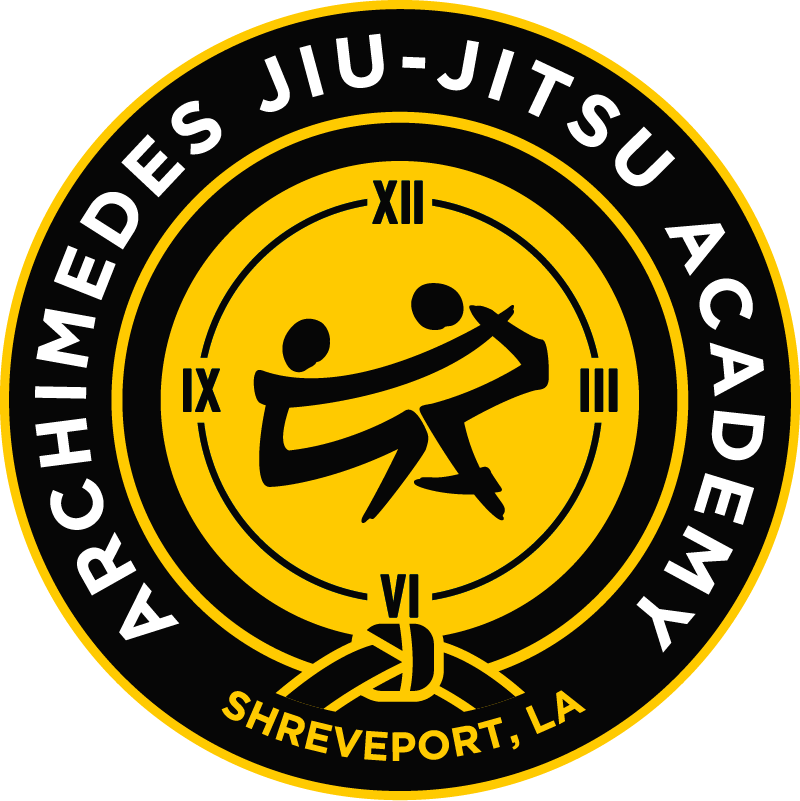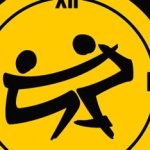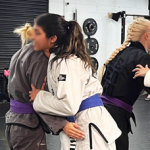Let’s talk about something people don’t always want to admit: violence exists.
And no, we’re not talking about movie scenes or fantasy self-defense scenarios with three attackers in a parking lot. We’re talking about the real, unpredictable, messy kind of violence that can show up when you least expect it—at a bar, in a parking lot, at work, even at home. It’s rare, but when it happens, the difference between freezing and surviving comes down to two things:
Preparation and mindset.
Get Comfortable with Discomfort
At Archimedes Jiu-Jitsu, we train to deal with chaos in a controlled environment. Rolling isn’t just about learning submissions and escapes—it’s about building comfort in the uncomfortable.
-
Getting crushed under mount? Stay calm.
-
Being choked? Learn to breathe, adjust, and escape.
-
Overwhelmed by pressure? Manage your space and slow things down.
That kind of exposure conditions your nervous system. It rewires your brain not to panic when someone gets aggressive. And when your brain doesn’t panic, you make smart choices—fast.
Violence Without the Damage
One of the biggest misconceptions about self-defense is that you have to punch your way out. Truth is, that’s often the worst move you can make.
-
You break your hand.
-
You escalate the situation.
-
You turn a control problem into a criminal one.
With Jiu-Jitsu, you can stop someone without smashing their nose or catching an assault charge. You can close the distance, manage the threat, and either subdue them or disengage entirely—all with control and technique. That’s the power of leverage over brute force.
Distance Is Everything
Most altercations can be prevented or defused before they become physical. Jiu-Jitsu sharpens your ability to manage that “pre-fight” space. You learn to recognize danger earlier, position yourself smarter, and control your proximity. Distance management isn’t just sport strategy—it’s survival.
Mindset > Muscle
Yes, you need strength. Yes, cardio matters. But the truth? Your mindset is the real edge.
Training Jiu-Jitsu puts you in uncomfortable scenarios over and over. You tap. You lose rounds. You struggle. That humbling cycle makes you mentally tough. It teaches you to stay composed under pressure—and that’s exactly the mindset you need when adrenaline spikes in real life.
Fear makes people freeze. Experience makes people act.
Martial Arts Isn’t Just Techniques
A lot of martial arts overlook the full picture. They focus on forms, drills, flashy techniques—but ignore the foundation: physical and mental fitness.
Think of it like a race car. You can have a pro driver behind the wheel, but if the tires are bald, the engine is weak, and there’s no fuel in the tank, you’re not winning anything.
Jiu-Jitsu, done right, builds the whole package:
-
Cardiovascular endurance
-
Real-world strength and grip
-
Mobility and body awareness
-
A calm, resilient mind
-
A plan when things go sideways
Bottom Line
You don’t train Jiu-Jitsu to become a fighter. You train Jiu-Jitsu to be ready—to control a situation before it controls you.
In a world where chaos can show up uninvited, being calm, prepared, and capable is the best kind of violence prevention there is.






